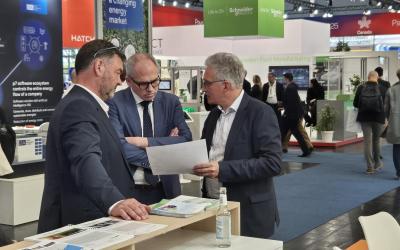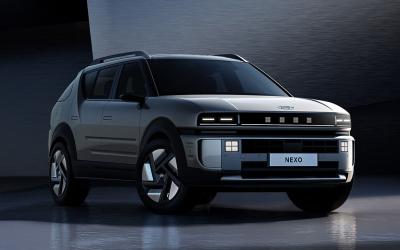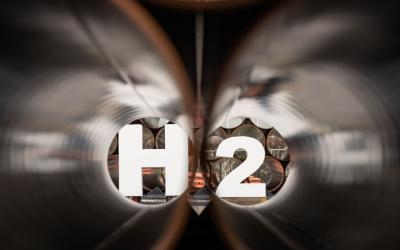Hydrogen refuse truck from European REVIVE project starts operation in Breda using a Hydrogen Region 2.0 refuelling station
The REVIVE project is pleased to announce the start of operation of a fuel cell refuse truck in Breda, The Netherlands. The truck will be supported by an Interreg-funded refuelling station as part of Hydrogen Region 2.0.
In a key milestone for the development of heavy-duty fuel cell technology in Europe, the first REVIVE truck today starts operation in real-world urban waste collection. The truck demonstrates significant technical progress, as the first fuel refuse truck developed and produced for the City of Breda by E-Trucks Europe. The fuel cell system is provided by a leading European supplier Proton Motor and acts as a range extender for E-Trucks Europe’s electric drivetrain technology.
New HRS
The E-Trucks Europe hydrogen refuse truck in Breda is supported by a mobile hydrogen refuelling station, deployed as part of the Interreg-funded Hydrogen Region 2.0 project to demonstrate various hydrogen applications by different end-users. In time, the truck will refuel at a new permanent hydrogen refuelling station (HRS), which will be integrated into a multi-fuel station currently under development by Total Nederland. This new refuelling station will also be implemented in the scope of Hydrogen Region 2.0, funded by Interreg Vlaanderen-Nederland.
Collaboration
This link between two European funding agencies highlights the importance of coordinated and collaborative activities in the development of fuel cell hydrogen technology as a clean, low-emission energy solution. The complementarity between the two funding structures leverages the impact of the project in Breda, enhancing the achievements of the REVIVE project whilst enabling the sharing of knowledge and expertise.
Double the range
The fuel cell technology doubles the operational range compared to a standard electric truck and allows it to operate along equivalent duty cycles to conventional diesel trucks, performing back-to-base missions every day. In total, 15 REVIVE trucks will be deployed across 8 sites in Europe, compiling a robust evidence base for the continued roll-out of fuel cell technology as a viable option for zero-emission waste collection.
Decarbonise
Refuse trucks are a particularly attractive application for early heavy-duty hydrogen fuel cell platforms, offering the ability to decarbonise a captive fleet with large and steady hydrogen demand. A key advantage of fuel cell refuse vehicles over diesel equivalents is that fuel cell options result in zero tailpipe emissions. Air quality is currently an issue of key political, and public health importance in Europe, and so the necessity for zero-emission options for urban vehicles is expected to increase significantly over the coming years.
Zero-emission waste collection
The Netherlands is committed to significantly decarbonising transport by 2030, by which time only zero-emission passenger vehicles will be sold. The Dutch government has confirmed its support to decarbonise urban cleaning and waste-collection vehicles, and several municipalities have signed a letter of intent to ensure that these vehicles will be zero-emission and run on renewable energy by 2030. The first REVIVE truck in Breda acts as a blueprint for the development of zero-emission waste collection in The Netherlands and across Europe.
Adwin Martens, Director, WaterstofNet, said: “This is a strong case of the complementarity of European programmes, a nice example of ‘1 + 1 = 3’. The combination of Interreg and FCH JU projects allows unique demonstrations at specific locations for dedicated end-users. Our experiences at WaterstofNet have shown that short-term on-site demonstration is a prerequisite for upscaling hydrogen technology.”

Read the full press release here: in English or in Dutch
More information on the REVIVE website
This project has received funding from the Fuel Cells and Hydrogen 2 Joint Undertaking under grant agreement No.779589. This Joint Undertaking receives support from the European Union’s Horizon 2020 research and innovation programme, Hydrogen Europe and Hydrogen Europe Research.









